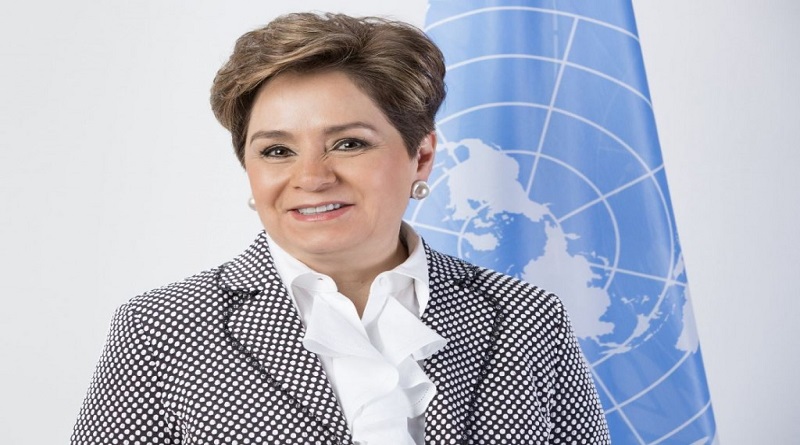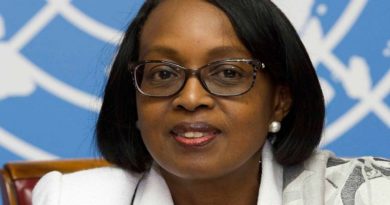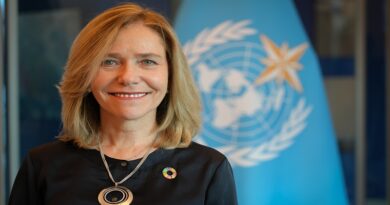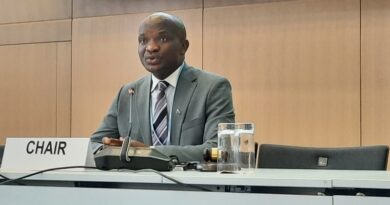Asia-Pacific Climate Week: Speakers highlight economic benefits of regional climate action
The opening of the high-level segment of Asia-Pacific Climate Week (to 6 September) took place in Bangkok on Wednesday September 4, 2019, with speakers warning of the dire consequences of low levels of ambition to tackle climate change for the region and pointing to the compelling economic arguments for more climate action.
Asia-Pacific Climate Week is designed to boost regional climate action and to provide crucial inputs to the Climate Action Summit convened by the UN Secretary-General on 23 September in New York and the UN Climate Change Conference in Chile in December. It is being attended by governments and representatives of all areas of society.
At the opening Varawut Silpa-archa, Thailand’s Minister of Natural Resources and Environment, said that his country had “prioritized climate action among its top national agendas” and requested all stakeholders in the region to show leadership.
“Climate change is here in the Asia-Pacific region, and it shows no signs of slowing down. Let’s start our actions and send a message of solidarity from the Asia-Pacific region to the global community that saving our children and grandchildren from the consequences of climate change is possible,” he said.
Ibu Armida Alisjahbana, Executive Secretary of the UN Economic and Social Commission for Asia and the Pacific (UNESCAP), on Wednesday called on countries in the region to decisively accelerate the transition to low carbon.
She asked nations to stop building coal power plants by 2020, reiterating a key message by UN Secretary-General António Guterres.
According to the climate science and policy institute Climate Analytics, plans for major new coal deployment in South and Southeast Asia alone could put the key objectives of the Paris Climate Change Agreement out of reach.
UNESCAP chief Alisjahbana underscored that the economic argument to shift to sustainable economies is compelling. For example, just a one per cent improvement in resource efficiency of material resources and energy combined could deliver the region up to USD 275 billion in savings.
And according to Ms. Alisjahbana, achieving ecosystem conservation related targets of the Sustainable Development Goals could result in a gain of USD 3.3 trillion worth of ecosystem services per year for the region by 2050.
The Deputy Executive Secretary of UN Climate Change, Ovais Sarmad, warned that current levels of ambition to tackle climate change are globally insufficient, and that nothing less than a full transformation of the global economy toward low carbon would enable the world to stave off the worst impacts of climate change.
“It is clear we must urgently boost climate action. Current Nationally Determined Contributions submitted by nations under the Paris Agreement put us on pace for a 3 degrees Celsius rise, and possibly more,” Ovais Sarmad said.
Countries are currently designing climate action plans under the Paris Agreement, which need to be communicated by the end of 2020. Countries and many stakeholders have been asked to come forward with plans for more ambitious climate action at the UN Climate Summit in September. In this regard, Ovais Sarmad sounded an encouraging note:
“We still have time—although not much time— to turn things around. Never have we been better placed to do so. We have a global framework through the Paris Agreement. We have reinforced that Agreement with a common set of guidelines. And we have the willingness and stated participation of governments and businesses throughout the world.”
Other speakers at the high-level opening included UN Special Envoy for the Ocean Peter Thomson, Polish COP24 Presidency High-Level Climate Champion Tomasz Chruszczow, and the Director General for the Melanesian Spearhead Group Ambassador Amena Yauvoli. Asia-Pacific youth were represented by Thai youth activist Punyapha Visavakornvisisd.
Asia-Pacific Climate Week is the third in a series of Regional Climate Weeks this year, the first two having taken place in Ghana in March, and Brazil in August. All the unavoidable emissions from Asia-Pacific Climate Week will be offset.
Organized every year in Africa, Latin America & Caribbean, and Asia-Pacific, the Regional Climate Weeks are unique collaborative platforms for government and non-Party stakeholders to address the full spectrum of climate issues under one umbrella and unity of purpose. The central aim is to bring together diverse stakeholders in the public and private sectors around the common goal of addressing climate change.




